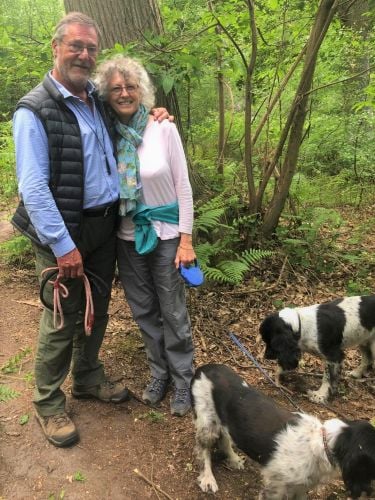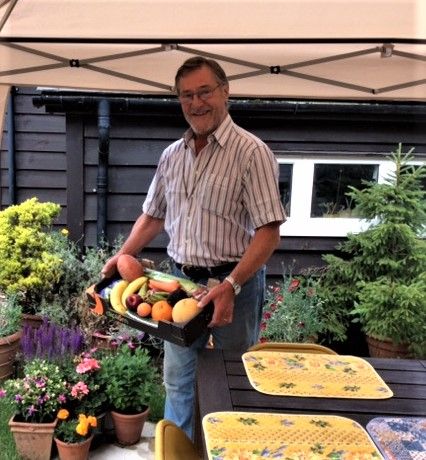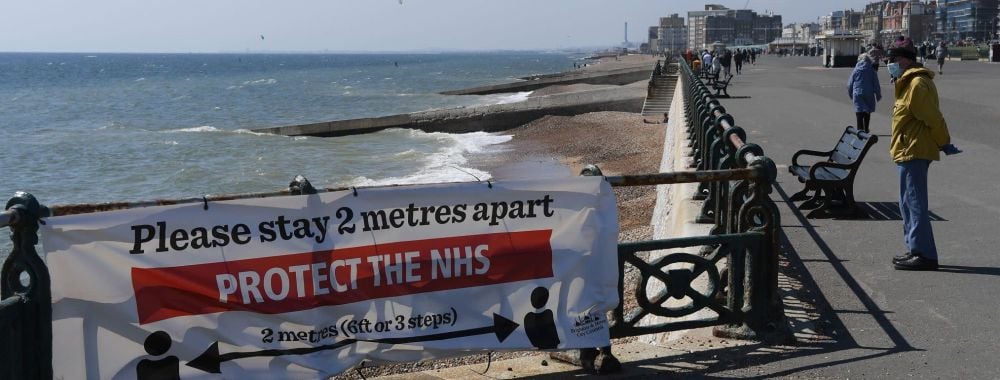Village view-point
Posted on
The very word, ‘pandemic’ makes people panic. Even in this small community, the little supermarkets were suddenly barren. Extraordinarily, the fruit stall was almost empty: did people think that fresh fruit would last for weeks? My wife does the shopping, as she is under 70 and only one of us at a time is allowed to enter the shop. I haven’t visited a shop for 14 weeks. We have managed to stay healthy and fortunately we enjoy each other’s company. Life has become slower: we walk and garden, we chat and read and write. Of course there is always a shadow of fear that the virus could reach us even here and that if it did, I, at least, would probably not survive. But it’s not a constant worry.

For many people, lockdown will have been very painful. It must have been very difficult for those who have to live in small apartments, but we can walk out for miles every day if we wish and breathe fresh air. It has really only been the inability to see our children and grandchildren that has been hard.
We live in a tiny village of less than 500 people. As soon as lockdown was announced, a village help group was created on ‘What’s App'. A few young people visit the Health Centre, 5 miles away, for example, to collect and deliver prescriptions for those in vulnerable groups, and others will do their shopping.
A village charity delivers a fresh fruit and veg box to every person over seventy, front line workers and those with underlying health conditions. And because so few villagers are leaving home to go to work, we have met lots of people while walking the dogs who we didn’t even realise lived in the village: so many were never here during daylight hours in the past.
In some ways, lockdown has reminded me of my early childhood. I was born not long after the Second World War, in a tiny agricultural village. Food was rationed, there were no supermarkets or big food stores, so there was nothing to panic buy. As most people made their own clothes, the closing of the High Street shops would not have worried them. There were only two cars in the village: my father’s and the doctor’s. The village Policeman, the two teachers and the vicar had bicycles but most people just walked everywhere, often for miles. Apart from the cows, sheep and pigs, it was very quiet. But we heard the birds: two of my brothers are still able to identify every British bird from its song! Our village has always been quiet but in the first days of lockdown, it became silent. And the birds seemed suddenly much louder. It was wonderful. We have a Dunnock, usually a timid little bird that now sits out in the open singing its heart out and goldfinches that vie with each other from the rooftops to see who can sing loudest. The cry of the curlew across the river can be heard for over a mile and the skylarks shrill in the fields.
 As overall panic has subsided, the anger and selfishness of people has been replaced by kindness and there is a real appreciation of those who have continued to work in order to make it possible for others to go on living as comfortably as possible: not just the NHS workers and teachers but the Carers, so poorly paid for doing such a difficult job with so much love; or the bus drivers, the bin men and those in our food shops.
As overall panic has subsided, the anger and selfishness of people has been replaced by kindness and there is a real appreciation of those who have continued to work in order to make it possible for others to go on living as comfortably as possible: not just the NHS workers and teachers but the Carers, so poorly paid for doing such a difficult job with so much love; or the bus drivers, the bin men and those in our food shops.
The quiet, the reduction in pollution and the sense of community, of care and respect for others has grown. The challenge for the future will be to prevent pollution rising again and to go on caring for others, as the panic over the virus fades.
By Chris and Wendy, June 2020



Add a comment: